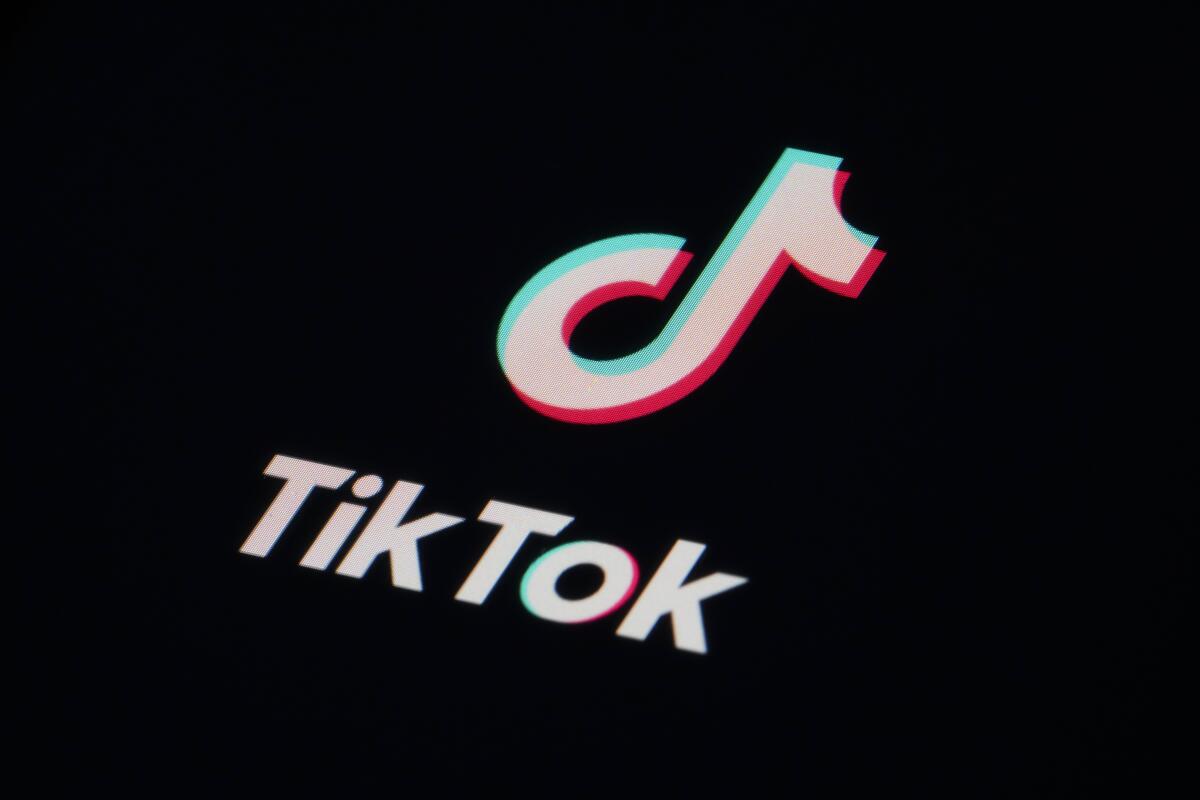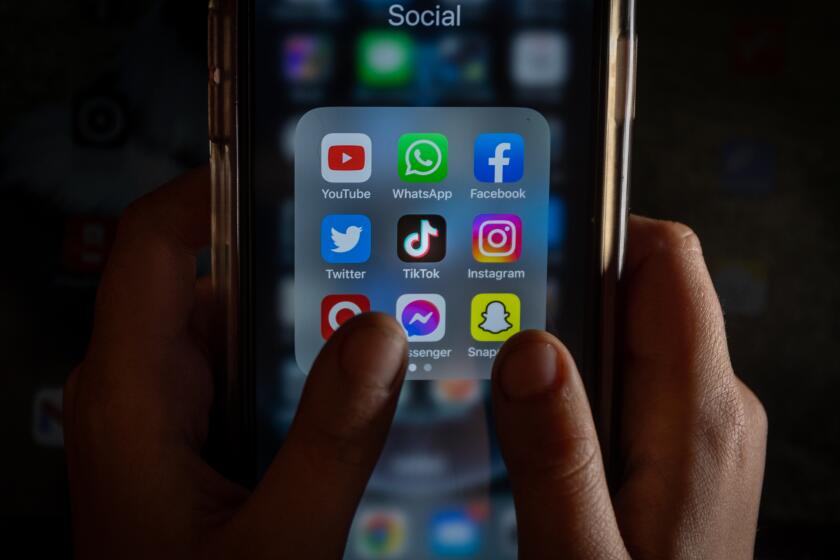Montana lawmakers pass bill to ban social media app TikTok

- Share via
HELENA, Mont. — Montana’s House gave final passage Friday to a bill banning the social media app TikTok from operating in the state, a move that’s bound to face legal challenges but also serve as a testing ground for the TikTok-free America many national lawmakers have envisioned due to concerns over potential Chinese spying.
The state House voted 54 to 43 to pass the measure, which would make Montana the first state with a total ban on the app. It goes further than prohibitions in place in nearly half the states — including Montana — and the federal government that prohibit TikTok on government-owned devices.
The measure now goes to Republican Gov. Greg Gianforte, who declined to say Friday whether he plans to sign it into law. A statement provided by spokesperson Brooke Metrione said the governor “will carefully consider” all bills the Legislature sends to his desk.
Gianforte banned TikTok on state government devices last year, saying at the time that the app posed a “significant risk” to sensitive state data.
TikTok spokesperson Brooke Oberwetter promised a legal challenge over the measure’s constitutionality, saying the bill’s supporters “have admitted that they have no feasible plan” to enforce “this attempt to censor American voices.”
The company “will continue to fight for TikTok users and creators in Montana whose livelihoods and First Amendment rights are threatened by this egregious government overreach,” Oberwetter said.
TikTok, which is owned by the Chinese tech company ByteDance, has been under intense scrutiny over concerns it could hand over user data to the Chinese government or push pro-Beijing propaganda and misinformation on the platform. Leaders at the FBI and CIA and numerous lawmakers of both parties have raised those concerns but have not presented any evidence that it has happened.
As the Biden administration weighs a ban on the app, many budding entrepreneurs fear losing a tool that has helped them build a robust customer base.
Ban supporters point to two Chinese laws that compel companies in the country to cooperate with the government on state intelligence work. They also cite troubling episodes such as a disclosure by ByteDance in December that it fired four employees who accessed the IP addresses and other data of two journalists while attempting to uncover the source of a leaked report about the company.
Congress is considering legislation that does not single out TikTok specifically but gives the Commerce Department the ability more broadly to restrict foreign threats on tech platforms. That bill is backed by the White House, but it has received pushback from privacy advocates, right-wing commentators and others who say the language is too expansive.
Montana Atty. Gen. Austin Knudsen, whose office drafted the legislation, said in a social media post Friday that the bill “is a critical step to ensuring we are protecting Montanans’ privacy,” even as he acknowledged that a court battle looms.
Montana’s ban would not take effect until January 2024 and would become void if Congress passes a national ban or if TikTok severs its connections with China.
TikTok has said it has a plan to protect U.S. user data.
Montana’s bill would prohibit downloads of TikTok in the state and would fine any “entity” — an app store or TikTok — $10,000 per day for each time someone “is offered the ability” to access or download the app. There would not be penalties for users.
The bill was introduced in February, just weeks after a Chinese spy balloon drifted over Montana, but had been drafted before that.
A representative from the tech trade group TechNet told Montana lawmakers that app stores do not have the ability to geofence apps on a state-by-state basis, so the Apple App Store and Google Play Store could not comply with the law.
Ashley Sutton, TechNet’s executive director for Washington state and the Northwest, said Thursday that the “responsibility should be on an app to determine where it can operate, not an app store.”
Knudsen, the attorney general, has said that online gambling apps can be disabled in states that do not allow it, so the same should be possible for TikTok.
More to Read
Sign up for Essential California
The most important California stories and recommendations in your inbox every morning.
You may occasionally receive promotional content from the Los Angeles Times.











